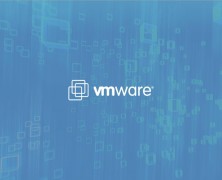In the year 1975 Gene Amdahl left IBM to found his own company, Amdahl Corp. IBM waged a vicious marketing campaign against Amdahl that ultimately caused Amdahl to define FUD as it is used in its modern context: “FUD is the fear, uncertainty, and doubt that IBM sales people instill in the minds of potential customers who might be considering Amdahl products.” The technology industry took the basic concept of argumentum in terrorem and refined it into its purest essence. Fear, Uncertainty and Doubt is the carefully calculated and malicious practice of using misinformation to generate doubt, and ultimately fear, in order to sell a product. FUD can be used at the level of an individual product, a feature, or wielded as a blunt cudgel against an entire company. It is used by individuals as part of social media interactions with thought influencers. It is used when talking to the media. Most heinously, it is used by sales people as part of high pressure sales tactics when selling to the end user. Often times, a technical document will need to exist that says “here are things we feel that existing solutions do wrong, and so our altered approach does them this way instead.” This is, however, worlds apart from integrating negative selling, innuendo and outright attacks directly into sales and marketing from the outset. The line between fact and FUD can be blurry. If someone asks you for your honest opinion on a competitor, and for facts to back it up, responding honestly isn’t spreading FUD. It’s answering a direct question honestly. What sets the honourable salesman apart is that they do not seek to instill fear, uncertainty or doubt or incorporate it as part of their regular sales pitch. This is what the clean fight...
Virtually an expert?
posted by Trevor Pott
The VMware vExpert program offers many benefits to those who participate the in VMware community. If you are a VMware administrator, a pundit who reports on VMware or a company that partners with VMware I strongly encourage you to apply. The deadline to apply for the VMware vExpert program has been extended to midnight PST, April 22, 2013, but that’s right around the corner! I have; let’s take a look at why. What are vExperts? According to the official vExpert 2013 blog post, vExperts are those who have “made some of the most important contributions to the VMware community. These are the bloggers, book authors, VMUG leaders, speakers, tool builders, community leaders and general enthusiasts. They work as IT admins and architects for VMware customers, they act as trusted advisors and implementers for VMware partners or as independent consultants, and some work for VMware itself. All of them have the passion and enthusiasm for technology and applying technology to solve problems. They have contributed to the success of us all by sharing their knowledge and expertise.” That’s a pretty broad brush, so let’s try to narrow this down a little. A vExpert is someone who knows a fair amount about VMware, VMware’s products or VMware’s community. They have in some way contributed to that community; either by advancing the community itself or by cheerleading for VMware and/or her products. Customer Path: This could take several forms; contrary to some common misperceptions, fighting the good fight internal to your organisation counts. If you’re the red tape warrior who downloaded ESXi onto your home network to learn how it works, did your research and went to tilt at windmills to get it deployed they you are a great candidate for the vExpert program. Evangelist Path: You...


